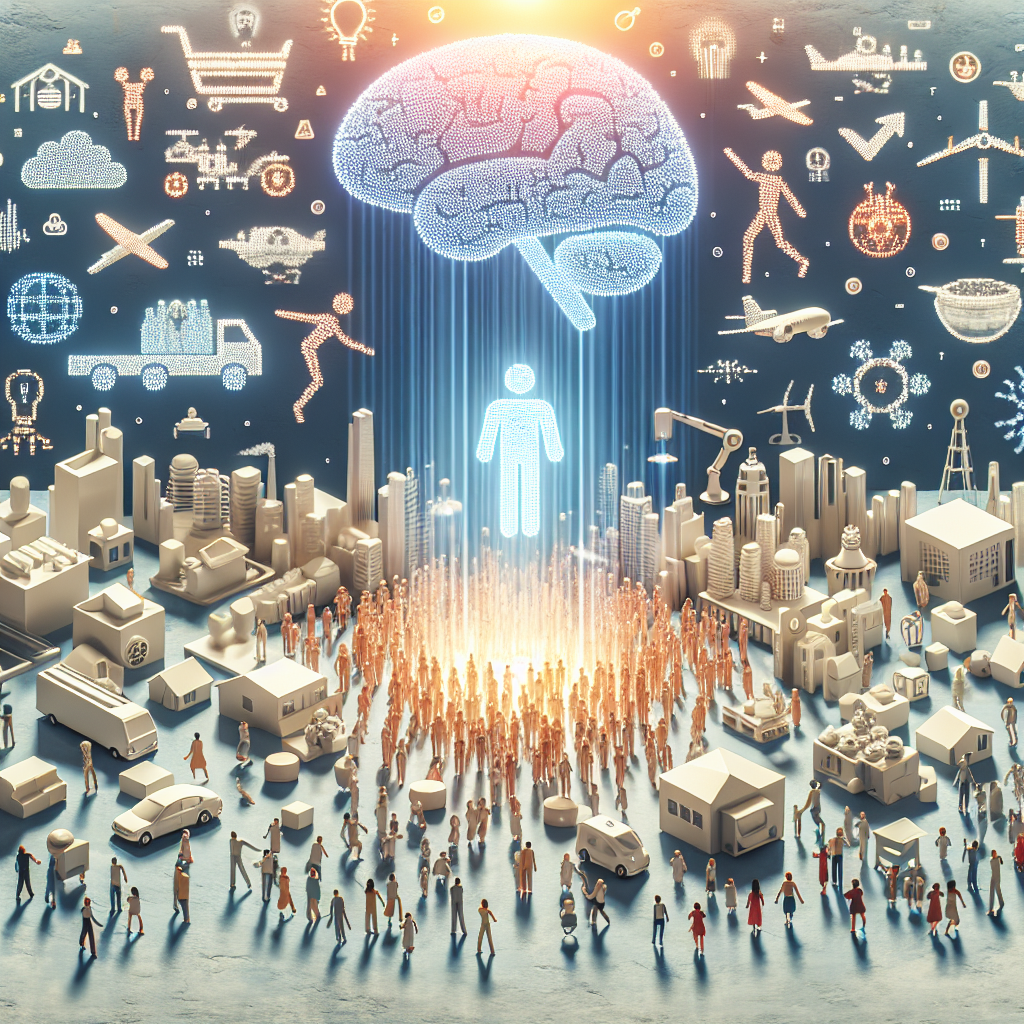The Rise of Artificial General Intelligence: Transforming Industries and Society
Artificial General Intelligence (AGI) is the next frontier in the field of artificial intelligence (AI). While narrow AI systems are designed for specific tasks, AGI aims to replicate human-level intelligence across a wide range of domains. The development of AGI has the potential to transform industries and society in ways we can only begin to imagine.
AGI is still in its early stages of development, but the progress being made is promising. Researchers are working on creating algorithms and systems that can learn and adapt to new situations, just like humans do. This level of intelligence has the potential to revolutionize industries such as healthcare, finance, transportation, and more.
In the healthcare industry, AGI could be used to analyze vast amounts of medical data to diagnose diseases and recommend treatments. This could lead to more accurate diagnoses, personalized treatment plans, and improved patient outcomes. AGI could also be used to develop new drugs and therapies more quickly and efficiently.
In the finance industry, AGI could be used to analyze market trends and make investment decisions in real-time. This could lead to more profitable trading strategies and better risk management. AGI could also be used to detect fraud and prevent financial crimes more effectively.
In the transportation industry, AGI could be used to develop autonomous vehicles that can navigate safely and efficiently in complex environments. This could lead to safer roads, reduced traffic congestion, and lower emissions. AGI could also be used to optimize transportation networks and improve logistics operations.
The impact of AGI on society will be profound. As AGI systems become more advanced, they will be able to perform a wider range of tasks that are currently done by humans. This could lead to significant changes in the job market, with some jobs being automated and others being created. It will be important for society to adapt to these changes and ensure that everyone has access to education and training to thrive in a world with AGI.
There are also ethical considerations to take into account when developing AGI. As these systems become more intelligent, there is the potential for them to make decisions that could have far-reaching consequences. It will be important to ensure that AGI systems are developed and used responsibly, with proper safeguards in place to prevent misuse.
Overall, the rise of AGI has the potential to transform industries and society in ways we can only begin to imagine. While there are still many challenges to overcome, the promise of AGI is too great to ignore. It will be important for researchers, policymakers, and society as a whole to work together to ensure that AGI is developed and used in a way that benefits everyone.
FAQs:
Q: What is the difference between narrow AI and AGI?
A: Narrow AI systems are designed for specific tasks, such as image recognition or natural language processing. AGI aims to replicate human-level intelligence across a wide range of domains.
Q: How close are we to achieving AGI?
A: While AGI is still in its early stages of development, researchers are making progress in creating algorithms and systems that can learn and adapt to new situations.
Q: What are some potential applications of AGI?
A: AGI could be used in industries such as healthcare, finance, transportation, and more to improve decision-making, optimize processes, and develop new innovations.
Q: What are some ethical considerations to take into account when developing AGI?
A: It will be important to ensure that AGI systems are developed and used responsibly, with proper safeguards in place to prevent misuse and ensure that the benefits of AGI are shared by everyone.

